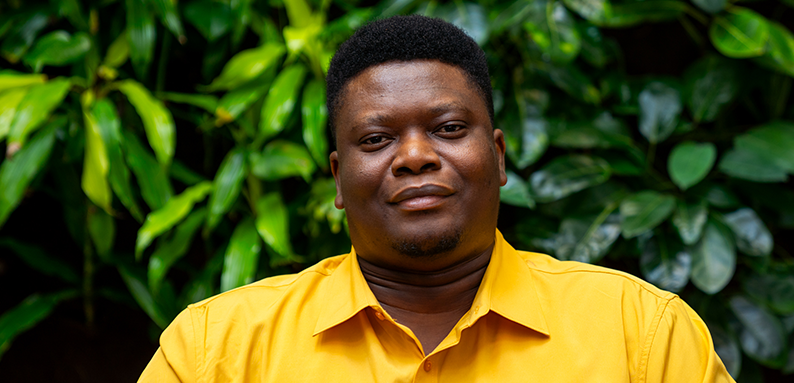Q&A with Olusoji Ogunbode

"The objective is to create culturally sensitive, impactful solutions that enhance healthcare quality, improve patient outcomes, and ultimately contribute to global health equity by making essential medical technology widely accessible."
Olusoji Ogunbode
PhD Candidate, Biomedical Engineering
What project are you working on?
This research focuses on developing a cost-effective, user-friendly wearable device to monitor symptoms of Parkinson’s disease, such as tremors, slowness of movement, and freezing episodes, at home and during daily activities. Guided by the Frugal Innovation 4A Framework (Affordability, Accessibility, Availability, Appropriateness) and grounded in EDIDI principles (Equity, Diversity, Inclusion, Decolonization, Indigeneity), the work incorporates insights from people with Parkinson’s disease, their caregivers, and clinicians in both Canada and Nigeria. Moreover, the overarching objective is to design culturally sensitive and impactful solutions that enhance healthcare quality, improve outcomes for people with Parkinson's disease, and contribute to global health equity by making essential medical technology widely accessible.
What problem(s) are you solving?
This research responds to critical gaps in continuous, objective, and accessible monitoring of Parkinson’s symptoms. Traditional clinical evaluations are infrequent and rely heavily on subjective reports; however, these methods often fail to capture day-to-day symptom fluctuations. In addition, existing wearable technologies are costly and impractical for consistent use, particularly in resource-constrained settings. For this reason, the development of a practical, real-time monitoring device is essential to overcome these challenges, support timely and personalized care, reduce healthcare costs, and achieve measurable improvements in symptom management and quality of life worldwide.
What brought you to this research?
The study is informed by awareness of the healthcare disparities faced by individuals with Parkinson’s disease, particularly in underserved communities. Moreover, drawing on expertise in medical device design and healthcare contexts in both Canada and Nigeria, the research emphasizes the need for culturally informed and contextually relevant biomedical solutions. For this reason, the driving aim is to empower people with Parkinson’s disease, provide meaningful support for caregivers and clinicians, and advance health equity through inclusive and accessible innovations. In addition, potential future developments include scaling the device for broader applications and integrating advanced analytics to further enhance outcomes for people with Parkinson’s disease globally.

